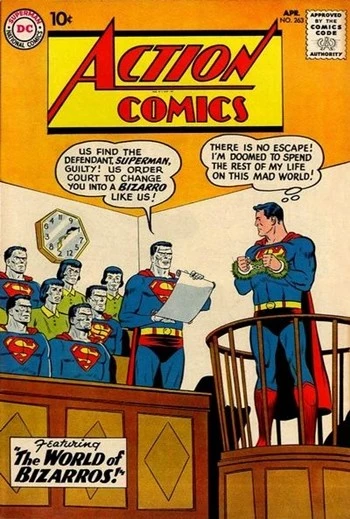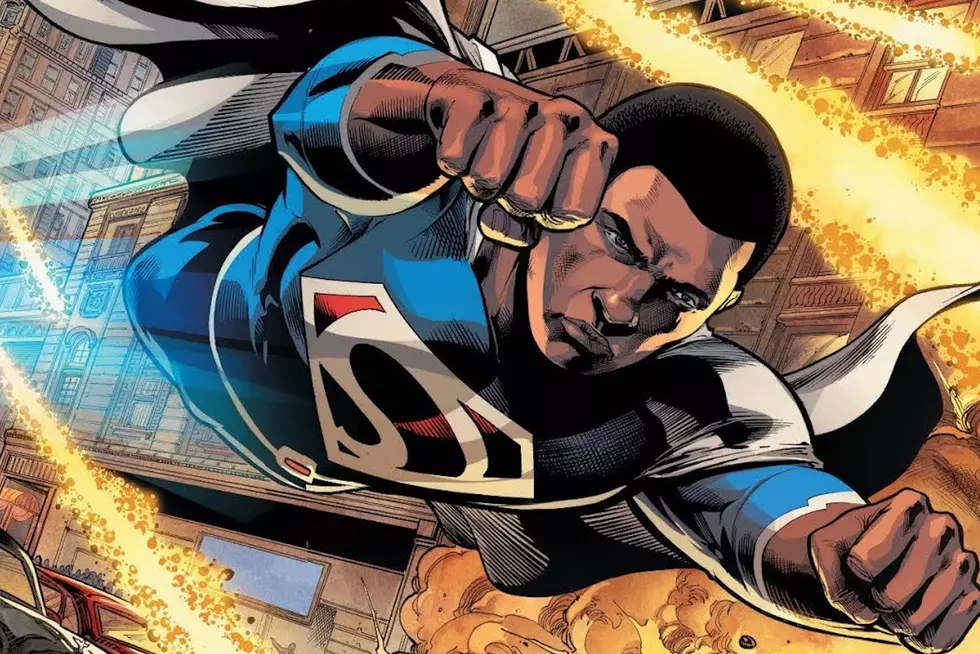
Warner Bros Wins Ruling in Case Against Siegel and Shuster Lawyer
 The Ninth Circuit Court of Appeals ruled yesterday that DC Comics owners Warner Bros will be allowed to make use of documents stolen from the office of the lawyer representing the heirs of Superman creators Jerry Siegel and Joe Shuster in their suit against that lawyer. You can read the ruling here. If this all sounds arcane and nefarious to you, bear with us and we'll try to break it down.
The Ninth Circuit Court of Appeals ruled yesterday that DC Comics owners Warner Bros will be allowed to make use of documents stolen from the office of the lawyer representing the heirs of Superman creators Jerry Siegel and Joe Shuster in their suit against that lawyer. You can read the ruling here. If this all sounds arcane and nefarious to you, bear with us and we'll try to break it down.
The lawyer in question is Marc Toberoff, an intellectual property specialist with a knack for digging up the original rights to old franchises and pitching them back to Hollywood. His website states that his firm has "successfully recaptured and enforced creators' rights" to properties including Fantasy Island, The Dukes of Hazzard, Get Smart, The Amityville Horror and My Favorite Martian. IMDB also throws up almost a dozen producing credits under Toberoff's name, including the 2010 Piranha remake and its forthcoming sequel, Piranha 3DD. Toberoff also represented the estate of Jack Kirby in its legal battles with Disney/Marvel.

Toberoff got involved in the Superman ownership battle about ten years ago when he took over legal representation for the Siegel and Shuster heirs. Around this time he also established a joint venture for the production of a new Superman movie, in which he held a 47.5% ownership stake.
Some time before June 2006 one of Toberoff's employees stole copies of documents relating to the case from his office and tried to draw the Siegel and Shuster heirs away from Toberoff. The documents included a letter from Jerry Siegel's son Michael Siegel to his sister Laura Siegel Larson in which he claimed that Toberoff meant to seize control of Superman for himself. The heirs rejected the employee's approach, so he sent the documents to DC along with a covering letter outlining the allegations against Toberoff.
In 2010 Warner Bros filed suit against Toberoff claiming that he had persuaded the Siegel and Shuster heirs to abandon an existing ownership agreement in pursuit of his own interests, citing the covering letter as the basis for its claim. Warner Bros did not cite the stolen documents, which Toberoff claimed were protected by attorney-client privilege.
Soon thereafter, Toberoff provided unredacted copies of the stolen documents to the US Attorney's Office investigating the theft from his office, in response to a subpoena that he had solicited. Lawyers representing Warner Bros contended that the disclosure of these documents was voluntary and amounted to a waiver of attorney-client privilege. They argued that they could now cite the documents in their suit against Toberoff. A court agreed. Toberoff appealed. The Ninth Circuit unanimously upheld the lower court's ruling.

That brings us up to date except for one key detail. In theory the rights to some of Superman's earliest appearances revert to the Siegel and Shuster estates in 2013 thanks to a previous legal victory by Toberoff in 2009 - shortly before Warner Bros launched its suit against Toberoff. How that rights split would play out in practical terms remains to be seen, but it could theoretically allow the heirs - and presumably Toberoff, under the terms of their joint venture - to create derivative works based on those early appearances in parallel to Warner Bros' Superman franchise.
Warner Bros clearly wants Toberoff out of the picture. The company's position is that Toberoff has poisoned its negotiations with the heirs to support his own business plans. Presumably they hope that establishing this would undermine the 2013 rights reversion, though its unlikely this is the only legal strategy they are pursuing.
If it is established that Toberoff was acting in his own interests, anyone supportive of the Siegel and Shuster ownership claim might have a hard time cheering for their lawyer, though the heirs clearly believe that they will see better rewards from a joint venture with Toberoff than they currently enjoy from Warner Bros.
[Via the Los Angeles Times]
More From ComicsAlliance









